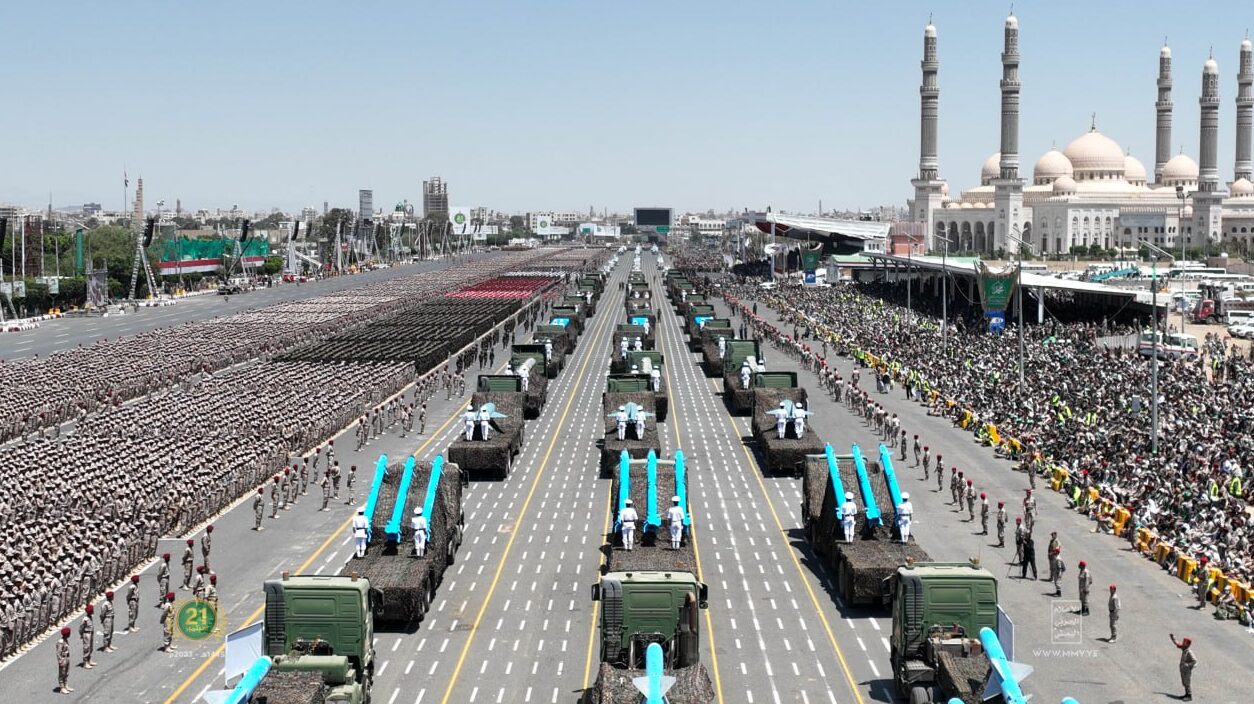Will Houthi Attacks in Red Sea Disrupt Nascent Peace Process in Yemen?
Although the warring sides recently agreed to a draft peace roadmap to end Yemen's brutal nine-year civil war, Houthi attacks on ships in the Red Sea and US-UK airstrikes in response have analysts asking whether the peace plan will go ahead
After nine years of brutal civil war, Yemenis are hopeful that they may be on the cusp of a return to peace following the announcement by the UN envoy to Yemen, Hans Grundberg, in late December that the warring sides had reached a draft agreement for a UN-led peace process. Exclusive media sources for The Media Line said the final sessions to discuss the peace roadmap are scheduled to be held during the next three months in Saudi Arabia.
However, the United States and United Kingdom have since launched a series of airstrikes on targets in Yemeni cities that they say belong to the Houthi rebel forces. This followed a UN Security Council resolution condemning the Houthi attacks on commercial ships in the Red Sea. Houthi leaders have said the strikes will not deter them from continuing their operations in the Red Sea, and that the US, UK, and every other country that participated in the attacks will be among their future targets.
The peace roadmap dictates stopping all military operations across Yemen, land, sea and air, which implicitly means stopping Houthi attacks in the Red Sea
Some say the US-UK strikes threaten the Yemeni peace process. Others say the peace process will stop the group’s threats in the Red Sea.
“The peace roadmap dictates stopping all military operations across Yemen, land, sea and air, which implicitly means stopping Houthi attacks in the Red Sea,” journalist and political activist Abdul Rahman Anis told The Media Line.
The Houthi attacks pose a clear threat to global shipping trade, about 12% of which passes through the Red Sea, and have prompted several countries to establish an alliance to protect commercial ships.
Saudi Arabia is refusing to participate in any military alliance against the Houthi operations in the Red Sea, and is also refusing to enter into any new confrontation with the Houthis, despite the Houthis having attacked Saudi oil installations and airports during the war.
“The kingdom fears classifying the Houthis as a terrorist organization or launching a military strike against them at the present time, which would mean negotiations failure and returning to square one, which is what the kingdom does not want, because it is focusing on concluding its negotiations with Yemen,” political researcher Abdul Salam Muhammad told The Media Line.
“There are other reasons for Saudi Arabia and the countries of the region not to participate in attacks against the Houthis,” he said.
Political writer Khaled Salman told The Media Line that the Houthis are taking shelter in the roadmap and coming peace agreement with Saudi Arabia, “which will postpone any real military operation against them [the Houthis] by America and its allies.”
The public’s political anger is rising against the Houthis, especially with the possibility of canceling the expected peace [process] due to the attacks in the Red Sea
“Saudi Arabia has pressed with all its political might to cancel any attack against the Houthis, but the continuing threat to security in the Red Sea is stronger than the kingdom’s pressure,” he said.
“The public’s political anger is rising against the Houthis, especially with the possibility of canceling the expected peace [process] due to the attacks in the Red Sea.”
Salman said that the Houthis must remove obstacles and accept this “historic opportunity” to restore peace to the region.
The draft roadmap for peace in Yemen stipulates stopping all military operations in Yemen, paying public sector employees’ salaries, starting to export oil, and entering into a comprehensive political process.
The Houthis have been attacking ships in the Red Sea since after the Israel-Hamas war began on Oct. 7, saying that they were acting in support of the Palestinians. After the US-led airstrikes on seven Yemeni cities, Houthi leaders declared that a military confrontation with the United States has begun. At the same time, reports say that Iranian warships have been arriving in the Red Sea and the Houthis have been obtaining Iranian weapons.
Maher Al-Khaled, a journalist affiliated with the Houthis, told The Media Line that many media reports say that the weapons and military hardware used by the Houthis were sent by Iran.
“The truth is that these weapons are nationally manufactured and there is an exchange of knowledge only with Tehran,” he said. “All weapons, including drones, naval boats, advanced cruise missiles, and others, were completely manufactured in the military production unit of the Yemeni army.”
Modern technologies for drones, boats, and sea mines come from Tehran. … The Houthis receive smuggled parts and small components by sea and then reassemble and manufacture these components into weapons
Many Yemeni observers would dispute this, as most reports and weapons seizures indicate that the Houthis have received military equipment from Iran.
Journalist and political writer Saddam Al-Huraibi told The Media Line that some of the Houthis’ arsenal, in particular their ballistic and cruise missiles, came from weapons seized from the Yemeni army after the Houthis took over the city of Sana’a in 2014.
However, “modern technologies for drones, boats, and sea mines come from Tehran, which is confirmed by the names of the similar names of aircrafts and similar types of technologies to those used by Iran,” he said. “The Houthis receive smuggled parts and small components by sea and then reassemble and manufacture these components into weapons.”


